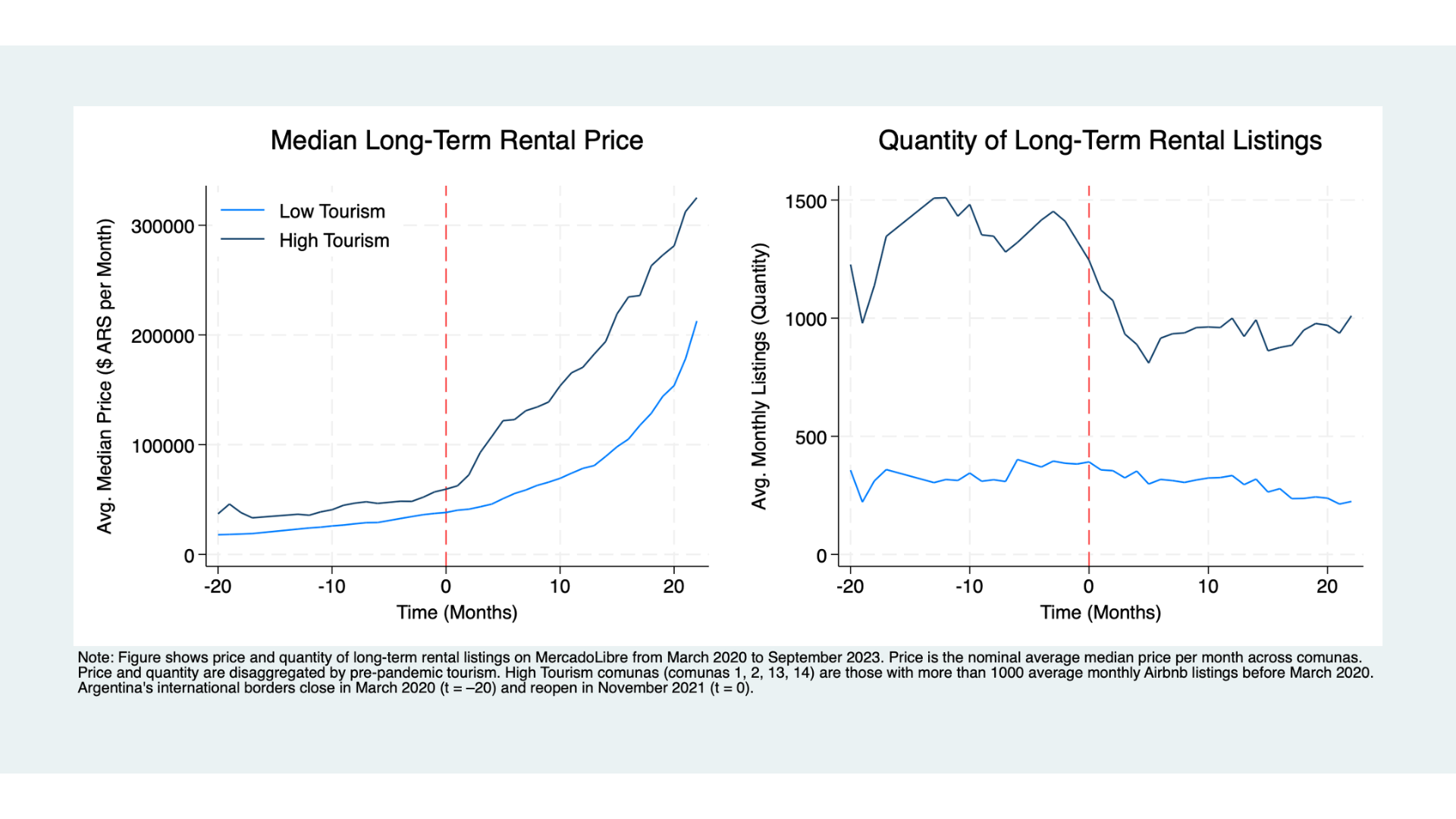Exporting Homes: How International Tourism Reshaped the Rental Market in Buenos Aires
How does a city’s housing market react when borders close and reopen during a global pandemic? In Buenos Aires, Argentina, a boom in short-term rentals has offered striking answers. Supported by a fieldwork grant from Georgetown’s Americas Institute, Juan Menéndez and Alec Brockell explored how the surge in international tourism after COVID-19 border reopening interacted with local housing regulations to transform the supply of long-term rentals in the city.

Using data from over one million property listings and in-depth interviews with property owners and real estate agents, their research found that Airbnb listings in Buenos Aires grew by over 60% between 2019 and 2023, with the strongest growth in the city’s northern neighborhoods. As the international tourism rebound unfolded after borders reopened in late 2021, the data revealed a striking pattern: for every 100 new Airbnbs listed, 71 long-term listings were removed from MercadoLibre Alquileres. Alternatively, the median monthly price of long-term listings rose by ARS 123 for every new Airbnb unit, other things being equal.
Their work sheds light on a policy blind spot in many global cities: housing regulations do not operate in a vacuum. In places where landlords can easily switch between markets, rent controls and rigid leasing rules may unintentionally push units out of the traditional rental market and into platforms like Airbnb. In the words of one property owner: “Airbnb is a rational hedge against uncertainty, especially when traditional rental contracts are rapidly losing value.”
The findings suggest that housing policy in global cities must consider the international trade dimension of real estate, given the growing substitutability between local and foreign demand from the landowners' perspective.
